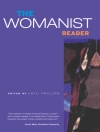Decision makers in managerial and public organizations often encounter de- cision problems under conflict or competition, because they select strategies independently or by mutual agreement and therefore their payoffs are then affected by the strategies of the other decision makers. Their interests do not always coincide and are at times even completely opposed. Competition or partial cooperation among decision makers should be considered as an essen- tial part of the problem when we deal with the decision making problems in organizations which consist of decision makers with conflicting interests. Game theory has been dealing with such problems and its techniques have been used as powerful analytical tools in the resolution process of the decision problems. The publication of the great work by J. von Neumann and O. Morgen- stern in 1944 attracted attention of many people and laid the foundation of game theory. We can see remarkable advances in the field of game theory for analysis of economic situations and a number of books in the field have been published in recent years. The aim of game theory is to specify the behavior of each player so as to optimize the interests of the player. It then recommends a set of solutions as strategies so that the actions chosen by each decision maker (player) lead to an outcome most profitable for himself or her- self.
Ichiro Nishizaki & Masatoshi Sakawa
Fuzzy and Multiobjective Games for Conflict Resolution [PDF ebook]
Fuzzy and Multiobjective Games for Conflict Resolution [PDF ebook]
Cumpărați această carte electronică și primiți încă 1 GRATUIT!
Limba Engleză ● Format PDF ● ISBN 9783790818307 ● Editura Physica-Verlag HD ● Publicat 2013 ● Descărcabil 3 ori ● Valută EUR ● ID 6390865 ● Protecție împotriva copiilor Adobe DRM
Necesită un cititor de ebook capabil de DRM












